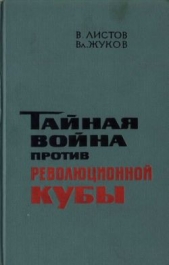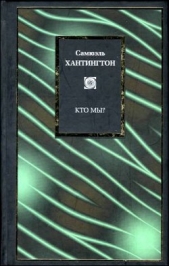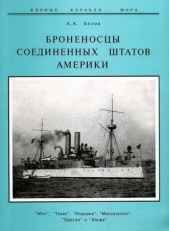Конституция США

Конституция США читать книгу онлайн
Конституция США – сравнительно краткий документ. В ней содержится приблизительно 7 тыс. слов. Она включает три компонента:
1) Преамбула, которая не признается судами и американской доктриной за составную часть закона, а рассматривается только с точки зрения источника, от которого она исходит, и целей, ради которых она выработана.
2) Семь статей, обозначенных римскими цифрами, занимающих иногда до нескольких страниц. Большинство статей делятся на разделы. Статьи главным образом определяют структуру органов государственной власти и регулируют их взаимоотношения, построенные на принципе сдержек и противовесов, т.е. распределяет компетенцию на федеральном уровне (статьи I–III), между союзом и штатами (статьи I и IV); устанавливают порядок изменения самого основного закона (статья V); содержат разноплановые положения в статье VI, часть из которых утратила силу (о признании США доконституционных долгов), а другие, наоборот, приобрели особое значение (нормы о соотношении внутреннего и международного права). Статья VII говорит о вступлении в силу самой конституции. Если характеризовать текст, содержащийся в статьях, то можно отметить, что он на первый взгляд кажется простым, логичным, сжатым и небольшим по объему, хотя при более внимательном рассмотрении в нем много нечеткого, неконкретного и противоречивого. Он изобилует общими выражениями, отсутствуют положения о важнейших институтах политической и государственной власти – о конституционном контроле, политических партиях, исполнительном аппарате, поверхностно характеризуется порядок избрания высших должностных лиц и органов, парламентская процедура.
3) 27 поправок, последняя из которых была принята в 1992 году. Поправки призваны пополнять содержащиеся в Конституции пробелы. Так, первые 10 поправок, носящие название Билль о правах, закрепляют свободу вероисповедания, свободу слова, печати, право обращения с петициями к правительству, право ношения оружия, неприкосновенность жилища и личности, право собственности, право на скорый и публичный суд, запрещение вторичного обвинения по одному и тому же делу и избирательное право. К настоящему времени некоторые поправки изменили положения предыдущих поправок, которые в свою очередь модифицировали первоначальный текст (например, последовательное преобразование и уточнение порядка избрания и замещения должностей президента и вице-президента, установленного в ст. II и поправках XII, XX и XXV). Все принятые поправки дописываются к основному тексту, а отмененный текст не устраняется, что затрудняет понимание.
Конституция США относится к жестким конституциям. Поправки к ней могут быть приняты 2/3 членов обеих палат высшего законодательного органа – Конгресса – либо специальным конвентом, созванным по инициативе 2/3 штатов (случаев такого созыва не было). Они подлежат ратификации (утверждению) законодательными собраниями 3/4 штатов либо 3/4 конвента штатов, созванных по решению федерального конгресса (ст. V).
Конституционный контроль осуществляется общими судами, а окончательное решение по федеральным актам принимает Верховный суд США, по актам штатов – обычно верховные суды штатов, но и в последнем случае по жалобе стороны (если эта жалоба пройдет необходимые судебные инстанции) верховный суд США может принять окончательное решение.
Внимание! Книга может содержать контент только для совершеннолетних. Для несовершеннолетних чтение данного контента СТРОГО ЗАПРЕЩЕНО! Если в книге присутствует наличие пропаганды ЛГБТ и другого, запрещенного контента - просьба написать на почту [email protected] для удаления материала
Section 6
Compensation and Privileges of Members
The Senators and Representatives shall receive a compensation for their services, to be ascertained by law, and paid out of the treasury of the United States. They shall in all cases, except treason, felony and breach of the peace, be privileged from arrest during their attendance at the session of their respective Houses, and in going to and returning from the same; and for any speech or debate in either House, they shall not be questioned in any other place.
No Senator or Representative shall, during the time for which he was elected, be appointed to any civil office under the authority of the United States, which shall have been created, or the emoluments whereof shall have been increased during such time: and no person holding any office under the United States, shall be a member of either House during his continuance in office.
Section 7
Passage of Bills
All bills for raising revenue shall originate in the House of Representatives; but the Senate may propose or concur with amendments as on other Bills.
Every bill which shall have passed the House of Representatives and the Senate, shall, before it become a law, be presented to the President of the United States; if he approve he shall sign it, but if not he shall return it, with his objections to that House in which it shall have originated, who shall enter the objections at large on their journal, and proceed to reconsider it. If after such reconsideration two thirds of that House shall agree to pass the bill, it shall be sent, together with the objections, to the other House, by which it shall likewise be reconsidered, and if approved by two thirds of that House, it shall become a law. But in all such cases the votes of both Houses shall be determined by yeas and nays, and the names of the persons voting for and against the bill shall be entered on the journal of each House respectively. If any bill shall not be returned by the President within ten days (Sundays excepted) after it shall have been presented to him, the same shall be a law, in like manner as if he had signed it, unless the Congress by their adjournment prevent its return, in which case it shall not be a law.
Every order, resolution, or vote to which the concurrence of the Senate and House of Representatives may be necessary (except on a question of adjournment) shall be presented to the President of the United States; and before the same shall take effect, shall be approved by him, or being disapproved by him, shall be repassed by two thirds of the Senate and House of Representatives, according to the rules and limitations prescribed in the case of a bill.
Section 8
Scope of Legislative Power
The Congress shall have power to lay and collect taxes, duties, imposts and excises, to pay the debts and provide for the common defense and general welfare of the United States; but all duties, imposts and excises shall be uniform throughout the United States;
To borrow money on the credit of the United States;
To regulate commerce with foreign nations, and among the several states, and with the Indian tribes;
To establish a uniform rule of naturalization, and uniform laws on the subject of bankruptcies throughout the United States;
To coin money, regulate the value thereof, and of foreign coin, and fix the standard of weights and measures;
To provide for the punishment of counterfeiting the securities and current coin of the United States;
To establish post offices and post roads;
To promote the progress of science and useful arts, by securing for limited times to authors and inventors the exclusive right to their respective writings and discoveries;
To constitute tribunals inferior to the Supreme Court;
To define and punish piracies and felonies committed on the high seas, and offenses against the law of nations;
To declare war, grant letters of marque and reprisal, and make rules concerning captures on land and water;
To raise and support armies, but no appropriation of money to that use shall be for a longer term than two years;
To provide and maintain a navy;
To make rules for the government and regulation of the land and naval forces;
To provide for calling forth the militia to execute the laws of the union, suppress insurrections and repel invasions;
To provide for organizing, arming, and disciplining, the militia, and for governing such part of them as may be employed in the service of the United States, reserving to the states respectively, the appointment of the officers, and the authority of training the militia according to the discipline prescribed by Congress;
To exercise exclusive legislation in all cases whatsoever, over such District (not exceeding ten miles square) as may, by cession of particular states, and the acceptance of Congress, become the seat of the government of the United States, and to exercise like authority over all places purchased by the consent of the legislature of the state in which the same shall be, for the erection of forts, magazines, arsenals, dockyards, and other needful buildings;-And
To make all laws which shall be necessary and proper for carrying into execution the foregoing powers, and all other powers vested by this Constitution in the government of the United States, or in any department or officer thereof.
Section 9
Limits on Legislative Power
The migration or importation of such persons as any of the states now existing shall think proper to admit, shall not be prohibited by the Congress prior to the year one thousand eight hundred and eight, but a tax or duty may be imposed on such importation, not exceeding ten dollars for each person.
The privilege of the writ of habeas corpus shall not be suspended, unless when in cases of rebellion or invasion the public safety may require it.
No bill of attainder or ex post facto Law shall be passed.
No capitation, or other direct, tax shall be laid, unless in proportion to the census or enumeration herein before directed to be taken.
No tax or duty shall be laid on articles exported from any state.
No preference shall be given by any regulation of commerce or revenue to the ports of one state over those of another: nor shall vessels bound to, or from, one state, be obliged to enter, clear or pay duties in another.
No money shall be drawn from the treasury, but in consequence of appropriations made by law; and a regular statement and account of receipts and expenditures of all public money shall be published from time to time.
No title of nobility shall be granted by the United States: and no person holding any office of profit or trust under them, shall, without the consent of the Congress, accept of any present, emolument, office, or title, of any kind whatever, from any king, prince, or foreign state.


























